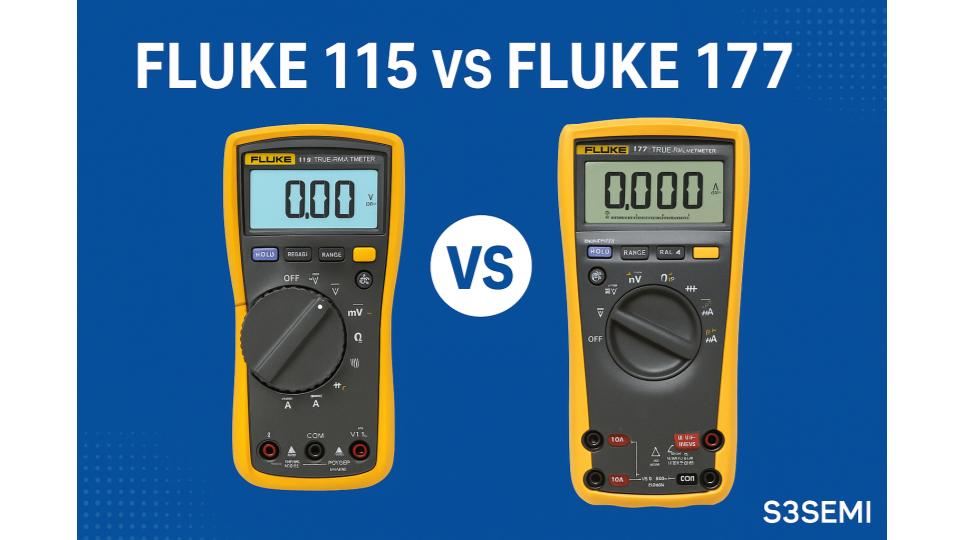Both the Fluke 115 and the Fluke 177 are trusted by professionals, but they serve slightly different needs. If you’re debating between these two models, this guide will break down the key differences, pros, cons, and which one is the better choice depending on your work.
🏷️ Fluke Multimeter Deals ⭐⭐⭐⭐
Quick Summary
The Fluke 115 is best for everyday use and budget-conscious buyers, while the Fluke 177 is the clear winner for advanced professionals who require accuracy, ruggedness, and long-term reliability.
📊 Fluke 115 vs Fluke 177 Comparison Table
| Feature | Fluke 115 | Fluke 177 |
|---|---|---|
| Target Users | General-purpose electricians, technicians | Professional electricians, industrial technicians |
| True RMS | Yes | Yes |
| Voltage Range | Up to 600V | Up to 1000V |
| Accuracy (DC Voltage) | ±0.5% | ±0.09% |
| Display | Backlit, large digits | Backlit, higher resolution, 6000-count |
| Safety Rating | CAT III 600V | CAT IV 600V / CAT III 1000V |
| Temperature Measurement | No | Yes (with included probe) |
| Frequency Range | Up to 50 kHz | Up to 100 kHz |
| Continuity/Diode Test | Yes | Yes |
| Warranty | 3 years | Lifetime warranty |
| Size/Weight | Compact, lightweight | Larger, slightly heavier |
| Typical Price | 💲Check Price | 💲Check Price |
⚡ Fluke 115 Overview
The Fluke 115 is designed as a general-purpose, everyday multimeter. It’s compact, easy to carry, and offers the essential features that electricians and technicians need for residential and commercial work.
✅ Pros of Fluke 115
- Compact and lightweight, easy to carry around
- Simple interface, ideal for quick everyday measurements
- True RMS for accurate AC measurements
- More affordable than the 177
❌ Cons of Fluke 115
- Limited to 600V (not suitable for all industrial applications)
- Lower accuracy compared to the 177
- No temperature measurement
- Shorter warranty (3 years vs. lifetime)
🔧 Fluke 177 Overview
The Fluke 177 is part of Fluke’s 170 series, built for professionals who need higher accuracy, a wider voltage range, and more robust safety ratings. It can measure up to 1000V, offers greater precision, and even includes temperature measurement, making it more versatile.
✅ Pros of Fluke 177
- Higher accuracy (±0.09% vs. ±0.5%)
- Wider voltage range (1000V vs. 600V)
- CAT IV 600V safety rating for tougher environments
- Measures temperature with included probe
- Lifetime warranty for peace of mind
❌ Cons of Fluke 177
- Larger and heavier compared to the 115
- Higher cost (almost double the 115)
- More features than some users may need for simple jobs
🎯 Recommendation
- Choose the Fluke 115 if you’re a residential or commercial electrician or technician who needs a reliable, compact, and affordable multimeter for everyday tasks. It’s simple, portable, and covers all the essentials.
- Choose the Fluke 177 if you need greater accuracy, higher voltage capacity, and industrial-level safety ratings. It’s better suited for professionals working in demanding environments where precision and durability matter.




